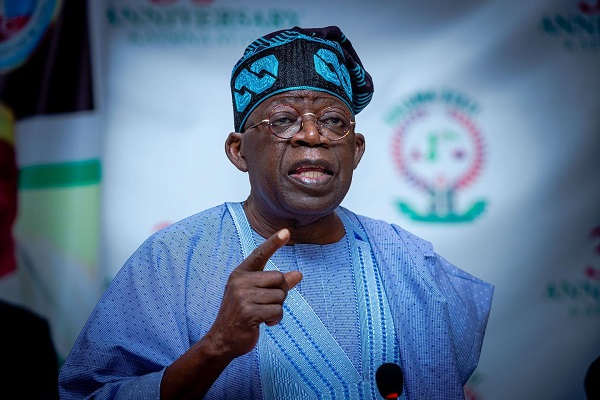President Bola Tinubu has vowed to invoke his constitutional powers to continue equipping, arming, and empowering the Nigerian military.
He made this declaration on Friday during the graduation ceremony of Course 32 participants at the National Defence College, Abuja.
The president acknowledged “the importance of strategic leadership in addressing the complex security and development challenges” confronting Nigeria.
Represented by Vice President Kashim Shettima at the event, the president expressed concern about the state of infrastructure at the National Defence College’s permanent site in Piwoyi, Abuja.
He noted that, while his administration has made substantial progress, there is still more work to be done at the institution.
Accordingly, he restated his administration’s commitment to ensuring the ongoing work and upgrading of the facilities at the permanent site are completed.
Vowing to arm and equip the nation’s armed forces, the President said, “Under my watch, members of the Armed Forces of Nigeria have made remarkable sacrifices and recorded significant achievements in protecting Nigeria’s territorial integrity and securing the lives and properties of our citizens.
I will continue to do everything within my constitutional powers to ensure that the Nigerian military is well-resourced and fit for purpose.”
ALSO READ: S’Court verdict: Gov Ododo commends judiciary, extends olive branch to Ajaka, others
President Tinubu thanked the graduates of Course 32 for their input and contributions to his research aimed at providing “strategic options for harnessing the mining industry in Nigeria to enhance national security and development.”
“We are already working with the fundamentals of your recommendations as we look forward to actualising our golden era scenario with substantial security assets supported by robust collaboration and institutional reforms,” he added.
The president praised the unique approach of the National Defence College in consolidating knowledge through what he described as “a broad thematic area,” saying it has helped in finding “sustainable solutions to national security and development problems in Nigeria, Africa, and beyond.”
President Tinubu also highlighted some of the significant progress made by his administration in addressing the challenges confronting the nation.
These includes the implementation of the new national minimum wage, which, according to him, will not only benefit civilian workers but also personnel of the Nigerian Armed Forces and other security agencies.
He continued, “We are also working tirelessly to curb the menace of crude oil theft and pipeline vandalism in the Niger Delta.
I have also tasked the Defence Headquarters and other security agencies with curbing this menace as soon as possible.
This will boost oil and gas production and achieve our desired economic stability.
We are committed to creating an enabling business environment that encourages value addition in our mining sector.
We are working with international partners to develop strategies that will harness this sector’s potential for national security and development.”
President Tinubu further charged the graduates of Course 32 to continue upholding the values of excellence, courage, patriotism, and integrity, while urging them to use their newly acquired knowledge and skills to address the multifaceted challenges facing Nigeria.
Earlier, the Commandant of the National Defence College, Rear Admiral Olumuyiwa Olotu, disclosed that the 111 graduates would contribute to Nigeria’s efforts to bolster its strategic leadership across various sectors.
He said, “Our mission is to develop future strategic leaders sufficiently equipped with the requisite knowledge and analytical skills necessary to harness the instruments of national power in a dynamic defence and security environment.
For participants of Course 32, this mission is achieved through a 9-module curriculum comprising subject areas such as research methodology, science and technology, conflict and war studies, policy formulation and analysis, and strategic leadership among others.”
The Course 32 graduates were drawn from national agencies and institutions, including the Nigerian armed forces, Nigeria Police Force, Department of State Security, and several ministries.
Notably, the class also included 19 international participants from countries such as India, Brazil, South Africa, and Ghana, as part of Nigeria’s commitment to fostering global cooperation in defense and security matters.
NIGERIAN TRIBUNE
